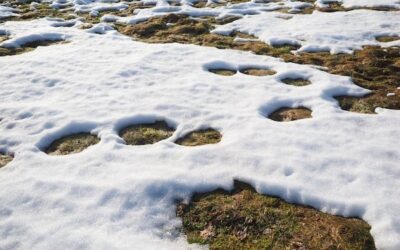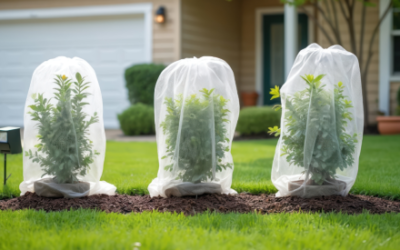Winter is often seen as a time to take a break from gardening, but savvy landscapers know that what you do during the colder months can significantly impact your plants’ health in the coming seasons. One of the most valuable steps you can take to protect your garden during winter is applying mulch. Winter mulching is more than just a finishing touch for your landscape; it’s a crucial step in ensuring your plants remain healthy and resilient despite the harsh conditions.
Why Mulch Matters in Winter
Mulch serves multiple purposes throughout the year, but its importance is magnified during winter. As temperatures drop and frost sets in, plants face a variety of challenges, including fluctuating soil temperatures, drying winds, and potential damage to their roots. Mulch acts as a natural insulator, providing a protective barrier that minimizes these risks.
Winter mulching offers the following benefits:
- Temperature Regulation: A consistent layer of mulch helps stabilize soil temperatures, protecting plant roots from freezing during sudden temperature drops.
- Moisture Retention: Winter winds and dry air can strip moisture from the soil. Mulch helps retain water, ensuring plants have the hydration they need.
- Weed Prevention: Even in winter, certain hardy weeds can take hold in your garden. A thick layer of mulch suppresses weed growth, reducing competition for resources.
- Soil Enrichment: As organic mulch breaks down over time, it adds valuable nutrients to the soil, improving its quality for the next growing season.
When and How to Apply Winter Mulch
Timing is everything when it comes to winter mulching. The ideal time to apply mulch is after the ground has begun to freeze but before heavy snowfall. This timing ensures that the mulch locks in moisture and helps regulate soil temperature without trapping excess warmth that could encourage late-season growth.
Steps for Proper Winter Mulching
- Prepare the Ground: Clear away fallen leaves, weeds, and any other debris from your garden beds. This helps prevent pests and diseases from overwintering beneath the mulch.
- Choose the Right Mulch: Organic mulches such as shredded bark, straw, or wood chips are excellent choices. These materials break down over time, enriching the soil.
- Apply a Sufficient Layer: Spread a 2-4 inch layer of mulch around your plants, being careful not to pile it directly against the stems or trunks. This prevents rot and allows air circulation.
- Secure the Mulch: In windy areas, consider using heavier materials or securing the mulch with garden fabric to keep it in place.
Which Plants Benefit Most from Winter Mulching?
While nearly all plants can benefit from winter mulching, some need it more than others. Pay special attention to:
- Perennials: These plants rely on strong root systems to return in the spring. Mulch protects their roots from frost and prevents heaving caused by soil freezing and thawing.
- Young Trees and Shrubs: Newly planted trees and shrubs are particularly vulnerable to cold damage. Mulch insulates their roots and helps retain moisture.
- Bulbs: Winter mulch provides an extra layer of protection for spring-blooming bulbs, ensuring they survive until it’s time to grow.
- Vegetables: In gardens with overwintering crops like garlic or onions, mulch helps prevent soil erosion and retains moisture.
Common Winter Mulching Mistakes to Avoid
While winter mulching is simple, there are a few pitfalls to watch out for:
- Applying Too Early: Mulching too soon in the season can trap warmth in the soil, potentially encouraging late-season growth that won’t survive the frost.
- Piling Mulch Too High: A thick mound of mulch pressed against plant stems or tree trunks can lead to rot and pest infestations. Always leave a small gap around the base of your plants.
- Using the Wrong Materials: Avoid non-organic mulches in winter, as they don’t break down and provide soil benefits. Materials like rocks or rubber mulch don’t offer the same insulation or enrichment properties.
Preparing for a Healthier Spring
By investing time in winter mulching, you’re giving your garden a head start for spring. Mulch not only protects your plants through the harshest months but also enriches the soil, making it more fertile and ready for planting. When the snow melts and the growing season begins, you’ll notice a marked difference in the health and vitality of your garden. At Jack’s Lawn Care & Landscaping, we know the importance of proactive winter care for your landscape. Our team of professionals can help you prepare your garden for the colder months, ensuring your plants are well-protected and ready to thrive in spring. Whether you need expert advice, mulch delivery, or full-service landscaping, Jack’s is here to help you make the most of your outdoor space all year long. Contact us today to learn more about our services!



